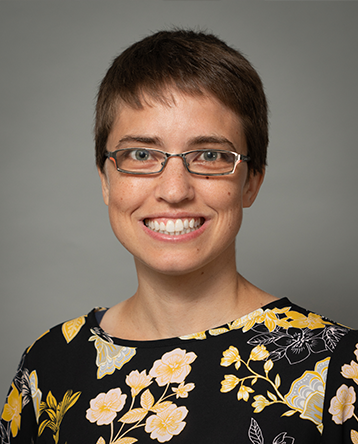Kurchin receives Simons Foundation award
Monica Cooney
Sep 24, 2024

Assistant research professor Rachel Kurchin has received the Scientific Software Research Faculty (SSRF) Award from the Simons Foundation’s Mathematics and Physical Sciences (MPS) division. The award supports researchers with aptitude and leadership in scientific software development and aims to further the advancement and maintenance of tools used in academic environments. Experts in scientific software are vital to research, as these instruments enable analysis, simulations, and visualization of findings. The award will span the course of the next five years, from 2024–2029.
“This award is exciting for me, both personally and professionally, as it shows that funders are beginning to recognize the importance of sustained work on building and maintaining scientific software,” said Kurchin. “It will give me significant flexibility to pursue several research directions that I anticipate will have longer payoff times.”
Kurchin’s project, “Next-generation charged DFT calculations in Julia,” will focus on building new capabilities within the Density-Functional Toolkit (DFTK), an electronic structure simulation package. The software helps scientists understand and predict how materials behave by modeling the density of electrons in a material. DFTK is built in the Julia programming language, which allows it to support a technique known as automatic differentiation (AD). AD allows programmers to take derivatives (in the calculus sense) of their computer programs, and is a vital underpinning to training machine learning models.
“I believe that AD has major potential in simulation of physical systems,” notes Kurchin. “It could enable new kinds of simulation, help to put better ‘error bars’ on results from existing tools, and also facilitate smoother integration of these tools with emerging data-driven techniques.”
Her project will aim to build functionality for charged calculations in DFTK, which are important for simulations of systems such as electrochemical interfaces and point defects in semiconductors, both crucial in her group’s broader research aimed at identifying better materials for clean energy technology.
Kurchin is also extensively involved in the Julia language community, serving as a developer and contributor to several packages, organizing the Pittsburgh-area user group, and staying involved with the annual JuliaCon conference, which will be hosted in Pittsburgh in 2025.
(VIDEO: Kurchin co-organized a minisymposium on Julia for materials science at the Pathways for Advanced Scientific Computing conference in Zurich this past summer, and is also running an upcoming workshop to be hosted at CMU in October.)
